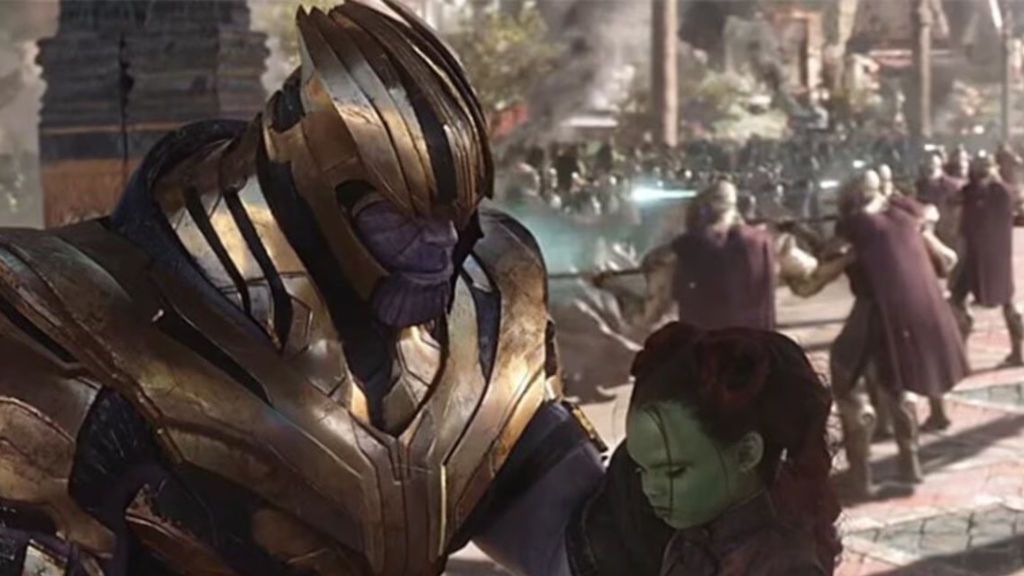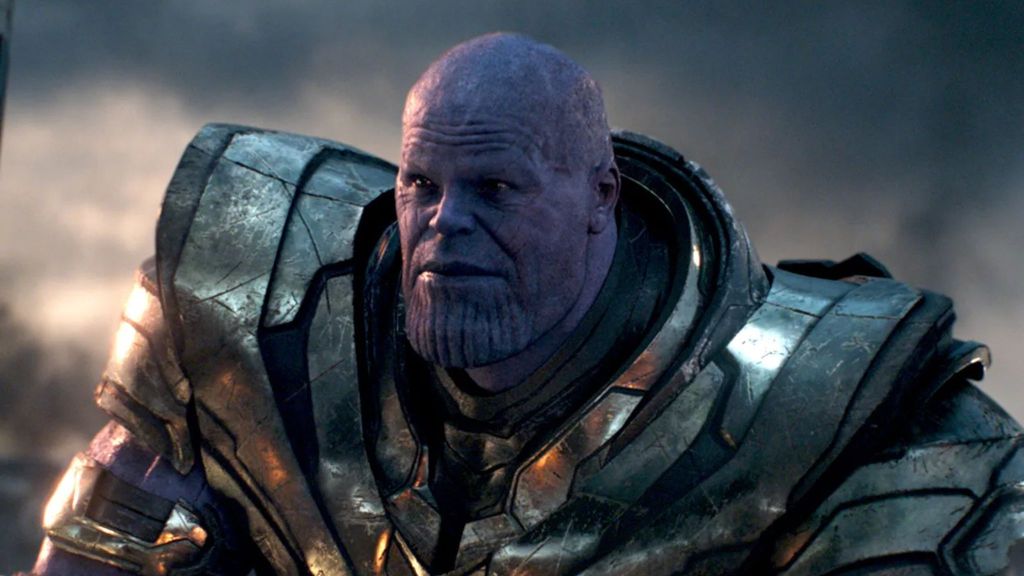Avengers: Infinity War featured Thanos (Josh Brolin), Marvel’s most compelling villain, a complex antagonist driven by a twisted but consistent ecological mission. Through careful development and nuanced motivations, the film portrayed Thanos as a tragic figure whose extreme solutions stemmed from genuine concern about resource depletion across the universe. And yet, Avengers: Endgame undermined this characterization by contradicting the fundamental logic behind Thanos’ grand plan, transforming him from a misguided extremist into an incompetent villain who couldn’t grasp basic biological principles.
Videos by ComicBook.com
Infinity War Worked By Making Thanos Debatable

In Infinity War, Thanos emerges as the only being willing to make brutal choices to prevent universal resource depletion. His philosophy mirrors Thomas Malthus’s population theory, which argues that population growth inevitably outpaces resource production. The story reinforces this through his interactions with Gamora (Zoë Saldaña), as he explains how her planet prospered after his intervention. When showing Gamora the results of his “mercy,” Thanos presents concrete evidence of his warped thinking. After he conquers planets and slays half of its people, the result is thriving civilizations with abundant resources, children who never know hunger, and ecosystems recovering from overexploitation. His twisted pride stems from measurable results that, in his mind, justify genocide.
[RELATED: The MCU’s Biggest Retcons: Rhodey’s Skrull Timeline, The Real Mandarin & More]
This portrayal created a villain whose actions, while monstrous, followed a coherent internal logic. His conviction that half of all sentient life must die to preserve resources positioned him as a tragic figure willing to become universally reviled to prevent what he perceived as inevitable collapse. The selective nature of his original plan – targeting only conscious beings while preserving the natural resources they consumed – demonstrated a methodical approach to his misguided mission. And then came Endgame…
Endgame Botched Thanos’ Evil Brilliancy

The five-year time jump in Endgame reveals that Thanos truly eliminated half of ALL living things. A devastated Earth shows signs of environmental collapse rather than the recovery Thanos’ plan should have produced: dark skies, still oceans, and silent landscapes demonstrate a desolation that contradicts Thanos’ stated goals of preserving life by reducing consumption. In general, The Snap is, by far, the most egregious logical flaw of two otherwise brilliant (if fantastical) Marvel movies.
Scientifically speaking, The Snap contradicts basic ecological understanding. Earth’s biosphere functions as an interconnected web where the sudden loss of 50% of all species would trigger catastrophic cascade effects. Removing half of all plants would immediately reduce atmospheric oxygen production. Decimating phytoplankton populations would devastate marine food chains. The loss of half of all pollinating insects would cripple global agriculture beyond the impact of losing half of all crops.
Now granted, Endgame’s first arc has people commenting on the natural disasters caused by Thanos’ Snap, but the desire to create a sad spectacle leads to a fundamental flaw in the movie‘s logic. If Thanos had only reduced sentient populations, Earth’s ecosystems would actually begin recovering within those five years, as evidenced by real-world examples. The temporary reduction in human activity during global lockdowns caused by the COVID-19 pandemic led to measurable improvements in air quality, wildlife populations, and water systems. However, in destroying the very resources he claimed to protect, Thanos’ “solution” accelerates the environmental collapse he sought to prevent.

The agricultural implications further expose the absurdity of The Snap. Thanos’ destruction of half of all food sources negates any benefit from reducing consumption. On Gamora’s planet, his original approach of culling only the population while leaving resources intact could theoretically achieve his stated goals; sadly, Endgame’s new vision of universal decimation lacks any measurable logic. Instead of ensuring surviving populations have access to doubled resources per capita, The Snap maintains the exact same ratio of consumers to supplies, while devastating the infrastructure needed to harvest and distribute those resources. This dubious creative choice reduces Thanos from a calculating extremist to someone who’s just fundamentally insane, if not dumb.
[RELATED: Avengers: Endgame’s Portals Scene Was Originally Much Different (But We’re Glad it Changed)]
While Endgame’s post-Snap imagery creates powerful moments that underline the nefarious effects of Thano’s actions, they also sacrifice what could have been a much more compelling ethical debate. The movie sidesteps challenging questions about overpopulation, resource distribution, and environmental ethics by making Thanos’ plan a clearly self-defeating one. A more nuanced approach could have improved his status as a compelling antagonist, while demonstrating the flaws in his methodology through careful argumentation rather than plot inconsistency.
Truthfully, Thanos’ characterization reflects broader issues in the MCU’s approach to antagonists. The franchise often succeeds in creating villains with understandable motivations – from Killmonger’s quest for justice to Vulture’s economic grievances. However, Marvel’s movies and TV shows frequently force villains to eventually shed complexity just to make it exceedingly obvious how “evil” they are. In Thanos’ case, his transformation from a complex eco-terrorist to a miscalculating mass murderer is a concerning pivot away from sophisticated character development. Rather than trust audiences to grapple with morally ambiguous questions about sustainability and sacrifice, Endgame opts for simpler solutions that ultimately diminish what could have been Marvel’s most thought-provoking villain.
Avengers: Infinity War and Avengers: Endgame are available for streaming on Disney+.








